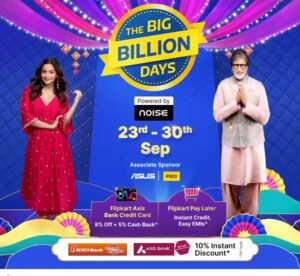You always wanted to write a blogs for a very long time. But you kept thinking about it and could never write it. Most likely you would have either dropped the idea or forgot about it. Millions are writing blogs across the globe every day, just like daily workouts or grocery shopping. Then, why is it so difficult for your to write even your first blog?
To solve the problem, let’s first understand the problem. What is blog/blogging? Why do people blog? What is it that people get/achieve by writing a blog? And then, we will discuss simple and easy steps on ‘How to write your first blog?’.
Table of Contents
What is a Blog?

Source: canva.comThe blog was initially called ‘weblog,’ which means ‘logging the web’ while surfing the internet. Later, it was shortened to ‘blog,’ keeping ‘b’ from the web and ‘log’ remained. This is how the word ‘Blog’ came into existence. In the early days, blogs were personal weblogs, articles, news, essay, or journals about a particular topic that people may be interested in reading and sharing. Nowadays, blogs are web pages that are updated regularly and are sources of latest information about topics of interest. It is done either for personal branding or business needs.
Why do people write a blog?
People write blogs for several reasons. The most popular reasons are
1. People want to share their thoughts and knowledge with others.
2. There is immense potential for earning if you are a successful blogger.
3. Being a blogger is considered hot and trendy.
4. People want to flaunt it on their social media accounts, resumes, and LinkedIn accounts.
But blogging has a different meaning for professional bloggers and marketers. For them, it is crucial for SEO, thought leadership, and building authority among their target audience. It also helps them in engaging their customers.
How to overcome beginner’s fear?
Blogging can be pretty daunting when you first start. You’re putting yourself out there for the world to see, which can be scary. Let’s explore some of the initial fear factors.

1. Demands long-term commitment and discipline
Remember when you bought your first long-term policy? You were hesitant to take up that long-term commitment, and a fear cropped up in your mind. But once you pay the initial few premiums, you settle down with it, and it becomes part of your life. The same happens with blogging. When you start planning for it, you realize it’s not a one-time thing and needs a long-term commitment. But once you have published 4-5 posts, you become comfortable.
2. I don’t have resources:
Once you start writing a blog, you realize that you don’t have the necessary resources. It would have been easier if you had a system/laptop, tools, a platform/website, internet, a desk/workstation, etc. It’s nothing, but your mind is playing tricks on you. Once you have decided and set a deadline, things will automatically fall into place.
3. Brain fog
As soon as you overcome the above-mentioned speed breakers and sit down to start writing about your topic, you realize that you have brain fog. There is confusion about how to start, end, what to write, and what not to write. You get entangled with everything, and you give up the idea. Relax; try to keep things simple for the initial few posts. Gather all critical points in one place. Follow mind mapping techniques. It will help in shaping your idea and start writing.
4. I am not a writer
Not everyone has good writing skills. You may be a good orator, storyteller, or presenter, but writing is a different skill set. That does not mean that only good writers can write blogs. It is all about expressing yourself and effectively sharing information relevant to your audience. You can take help from tools like Grammarly and Copymatic to write correct and powerful content. There are many other tools available for different purposes. But for the initial few posts, don’t run after them. You will learn about them and master their usage if you continue writing and posting regularly.
5. Motivation
You need continued and long-term motivation for blogging. It can be a commercial interest, a professional requirement, or a hobby. But you must have a reason to start a blog that results in long-term commitment and effort to reach out to your target audience.
Now you know what a blog is, why people write blogs and the basic requirements of being a blogger. Let’s move on and understand how to write your first blog.
It’s a new adventure!
There’s something special about writing your first blog. You get to share your thoughts and ideas with the world. Start with whatever you’re passionate about – whether it’s a hobby, current events, or something else entirely. The important thing is to be genuine and write from the heart.
If you are not a professional writer, do not think about creating your niche or style of writing at this stage. You can do it later. Focus on publishing your first few blogs successfully in a time-bound manner.
Steps towards your first blog
1. Choose a topic: Assuming you have a topic in mind, the first step is to develop a catchy title for your blog post. Once you have your title, it’s time to start writing! Ensure you add a fresh perspective/dimension to the topic for your audience.

2. Define your target audience: You must define and create a persona for your target audience, who may be interested in the topic you have chosen. This will help in storytelling and targeting to promote your blog.
3· Select your platform. Once you know what you want to write about and for whom you are writing, it’s time to choose where you want to write it.
There are a lot of different blogging platforms out there (WordPress, Blogger, Tumblr, GoDaddy), so take some time to explore your options and find the one that best suits your needs and budget. This usually involves picking a theme or template and adding your content and photos.
4. Type of blog: This is very critical. You have to choose what type of blog you want to post. The tone and flow of your content will depend on this.
There are five popular types of blog posts.
- Research-based long-form blog posts.
- Data-driven post.
- Personal stories post.
- Infographics and video-based posts.
- Counter-opinion posts with rationales.
5· Know more about your topic: Do in-depth research about your chosen topic. Find out what are common problems your research is pointing at. Select all workable solutions to those problems and make a note of them. You can explain those solutions with life lessons and real-life experiences to your readers. They
will be able to relate well to your post and engage.
6· Search Engine Optimization and Keyword research: Do some research on keywords related to the topic. Find out those keywords people are searching for to find a solution to their problems. Use tools like ‘Semrush’ MOZ’ or ‘Google Keywords planner.’ Use this keyword wisely. Do not stuff your post with too many keywords. Use them wherever they are required genuinely.
7· Style and Tone: Don’t get entangled about deciding the style and tone for the first few blogs. It will come naturally in due course if you manage to continue writing blogs consistently. Stay focused on your audience and use a style and tone which will be simple and suitable for them.
8· Add links: Always add links to some trustworthy sources in your write-ups. This is important to build authority for your site. It will also help in SEO efforts.
Please make a list of links about several topics and data you have referred to while researching your topic and use some of them in your post. While using links, be mindful about
- Relevance of content
- Reliability of link
- Authority of link
Get Set Go…
Now you know the basics of ‘How to write your first blog?’. No more waiting. Start sharing your thoughts, ideas, and experiences with the world. Write about
whatever you want, whenever you want.
Once your first draft is ready, take a step back and read over what you’ve written. Is there anything you can add or edit to make your piece more interesting or
engaging? You must conclude the blog smartly by recollecting everything you mentioned in the blog post and adding a fresh and original viewpoint.
When you are ready to post:
- Proofread your content 2-3 times.
- Make sure there is no typo or grammatical mistakes.
- Take a break of a few hours or a day and review your content with a fresh mind before finalizing it.
- If possible, share it with your friends or colleagues and ask for feedback and suggestions.

2. Ensure that you include the share buttons of your social media accounts and that all your social media links are active.
3. All infographics, images, and videos are correctly tagged.
4. Add a byline or short bio of the author. This helps in building trust with the audience.
5. If possible, add links to your LinkedIn and Twitter profiles. This will allow readers to learn more about you and connect with you.
Ask for a subscription so a reader can be notified when posting a new article.
Final Posting:
Always publish your blog on a pre-scheduled day and time of the week. Share snippets to build excitement on social media and the website before publishing the post.
Closer tips:
- Keep it simple: Try to keep things simple for yourself. Control your thoughts from running in all directions. Gradually, you will get used to the process.
- Keep things organized: Gather your thoughts and structure them smartly. Arrange links, keywords, and images in one folder and rename them appropriately if required. Use them wisely while drafting your post.
- Include a comment section at the end of your post, where readers can create a dialogue with you and other readers.
- Ensure you have activated a welcome message for subscribers, which gets triggered as soon as a reader subscribes to your blog post and social media account.
Hey there. Thanks for stopping by!

I am Dipak Kumar. I am an entrepreneur and blogger. In my long professional journey, I have worked with various organizations at different levels as a marketer, retailer, and merchandiser. Throughout this journey, I have worked along the consumer funnel. I have witnessed customers’ ever-changing buying behaviours, from brick-and-mortar stores to organized retail to E-Commerce.
I am writing this blog to share my knowledge and understanding of trending news, events, and subjects from Marketing, Retail, E-Commerce, Edtech, Travel, and Start-Ups. It’s not a nine-to-five job for me. It is a full day and night job requiring in-depth research and collaboration to put things together and bring a new perspective for your consideration. I love doing this and hope you also like it and share it with your contact and online communities.




